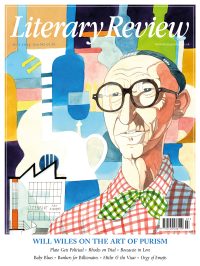Lucy Popescu
Mehmet Dicle
Turkey’s president Recep Tayyip Erdoğan and his government maintain a tight grip on the media in the country. In recent years, they have significantly expanded their influence over the publishing industry too. Scores of writers have seen their books banned or censored. Kurdish writers and journalists in particular endure unjust discrimination and regularly face prosecution under the country’s anti-terror laws and laws against criminal defamation.
Last October, I wrote in these pages about Kurdish author Yavuz Ekinci, who was charged with ‘making terrorist propaganda’. The charges related to his 2014 novel Rüyası Bölünenler (‘Dream Divided’), which tells the story of a Kurdish man who leaves Turkey for political reasons and struggles to build a new life in Germany. Upon learning that his father is gravely ill, the protagonist sets out to find his long-lost brother, who, years before, took up arms and fled to the Qandil Mountains. The court dismissed the case in December 2024, but prosecutors subsequently appealed the verdict. The publication, distribution and sale of Rüyası Bölünenler in Turkey are banned.
Now Mehmet Dicle, another Kurdish writer, finds himself facing prosecution on similar grounds. In January, the prison authorities in Yozgat, central Turkey, seized a range of books being read by detainees, including unofficial translations of Dicle’s 2023 novel Berfa Sor (‘Red Snow’). Published by ZİZ, a firm that specialises in bringing out Kurdish literary works, Berfa Sor is set in the fictional town of Asûs. The novel documents the anguish and longing of the parents of a guerrilla fighter. Following the confiscation of the novel by the prison authorities, the local prosecutor’s office launched an investigation into the book. It concluded that it amounted to terrorist propaganda. A case file was subsequently sent to the prosecutor’s office in Dicle’s hometown of Diyarbakır, southeastern Turkey. Dicle and ZİZ now stand accused of ‘making terrorist propaganda’ for the outlawed Kurdistan Workers’ Party (PKK), a charge that carries a lengthy prison term.
Dicle was born in 1977 in the village of Çolaxa near Bismil and grew up in the town of Hezro, northeast of Diyarbakır. In the 1990s he moved to Istanbul to study geography. After graduating from university he worked as a high-school teacher in Istanbul and in Diyarbakır. He has published three short-story collections written in Kurdish: Asûs (2005), Nara (2010) and Ta (2014). Like Berfa Sor, most of Dicle’s short stories are set in the imaginary town of Asûs. Inspired by the work of Gabriel García Márquez, Jorge Luis Borges and Carlos Fuentes, Dicle employs elements of magic realism in his fiction. According to his Polish translator Joanna Bocheńska, Dicle’s works were inspired by his childhood in Hezro, particularly the stories told by his grandmother, the songs of the denbêjs (traditional Kurdish performers and storytellers) and his education under the guidance of his father, a Muslim teacher. In an interview with Bocheńska, Dicle stated:
For me, the Kurdish oral tradition is an endless ocean of inspiration. It is a treasure trove of language, topics, styles of narration, sources of cultural knowledge, and Kurdish identity. However, the modern writer can easily get suffocated in this ocean if he does not possess sufficient literary skills, if he is not able to take advantage of folklore, following the leads of modern literature.
Dicle’s work as a translator includes Kürt Dili ve Edebiyati (‘Kurdish Language and Literature’), a textbook written in Turkish. Since 2020, Dicle has been acting editor of the magazine Kurdeçîrok, which publishes short stories. In 2025, together with a group of fellow writers, Dicle co-founded LiteraKurd, a cultural centre in Diyarbakır. As its director, Dicle coordinates literary activities, including seminars, panels, children’s events, language courses and writing and translation workshops. He is also a member of Kurdish PEN.
Commenting on the case, Burhan Sonmez, president of PEN International, observed:
Once again, the authorities of Türkiye are targeting a writer and a publisher merely because they dared draft and print a novel. The case is as dangerous as it is absurd. We stand with Kurdish PEN member Mehmet Dicle and ZİZ Publishing House and urge the authorities to stop initiating ludicrous terror-propaganda cases based on fictional literary writings.
Readers might like to send appeals urging the Turkish authorities to drop their investigation into Mehmet Dicle and ZİZ, and seeking assurances that the government will stop censoring and persecuting writers and journalists for peacefully exercising their right to freedom of expression, including through the misuse of counter-terrorism laws.
Appeals to be addressed to:
His Excellency Yılmaz Tunç
Minister of Justice
Email: info@adalet.gov.tr
Twitter: @yilmaztuncHis Excellency Osman Koray Ertaş
Turkish Embassy
43 Belgrave Square
London SW1X 8PA
Email: embassy.london@mfa.gov.tr
Twitter: @TurkEmbLondon

Sign Up to our newsletter
Receive free articles, highlights from the archive, news, details of prizes, and much more.@Lit_Review
Follow Literary Review on Twitter
Twitter Feed
Alfred, Lord Tennyson is practically a byword for old-fashioned Victorian grandeur, rarely pictured without a cravat and a serious beard.
Seamus Perry tries to picture him as a younger man.
Seamus Perry - Before the Beard
Seamus Perry: Before the Beard - The Boundless Deep: Young Tennyson, Science, and the Crisis of Belief by Richard Holmes
literaryreview.co.uk
Novelist Muriel Spark had a tongue that could produce both sugar and poison. It’s no surprise, then, that her letters make for a brilliant read.
@claire_harman considers some of the most entertaining.
Claire Harman - Fighting Words
Claire Harman: Fighting Words - The Letters of Muriel Spark, Volume 1: 1944-1963 by Dan Gunn
literaryreview.co.uk
Of all the articles I’ve published in recent years, this is *by far* my favourite.
✍️ On childhood, memory, and the sea - for @Lit_Review :
https://literaryreview.co.uk/flotsam-and-jetsam